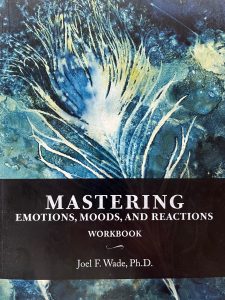There is one quality, more than any other, that leads predictably to greater success and effectiveness in the world: the ability to choose between short term pleasure/avoidance of pain on the one hand, and longer-term goals and values on the other.
People who have a strong capacity for delaying gratification like this are more successful academically and professionally, earn higher incomes, have better relationships, and are less likely to engage in criminal behavior or destructive personal habits.
We can deliberately grow this quality in ourselves.
For most of us, most of the time, this comes down to a question of consistency around more subtle day to day choices: Do I spend this next hour focused on my work project, or scrolling social media? Do I go to a somewhat challenging social event or stay home? Do I get up and do a workout, or sleep in? Do I make the effort to spend time connecting with my spouse or allow myself to get distracted with other things?
I’ve been working with people as a teacher, Marriage and Family therapist, and coach for over 40 years now. I have worked – and continue to work – with people all over the world via phone and video. In all that time, across many different cultures, there’s one question that I’ve found more effective than any other in clarifying these choices, so that the better decision stands in stark relief.
Here is that question:
“What will I be proud of tomorrow?”
(When I use the word pride, I mean a healthy pride, not boastful arrogance. I mean that good feeling we get when we’ve earned something, when we’ve done something challenging, and come through it well. But pride can have a negative connotation for some people, so if you prefer, you can say it as: “What will I feel better about having done – or not done – tomorrow?”)
- If you’re wondering whether to save and invest that extra money, or spend it on a short-term impulse… what will you be proud of tomorrow?
- If you’re not sure whether you should let your spouse know how much he or she means to you… what will you be proud of tomorrow?
- If you’re trying to decide whether to cut corners on your work project, or spend the extra time and energy to do it right… what will you be proud of tomorrow?
- If you’re more on the introverted end of the spectrum, and you feel like staying home instead of getting together with friends… what will you be proud of tomorrow?
- If you don’t know if you should accept a challenging new opportunity, or stay within your comfort range… what will you be proud of tomorrow?
Too often we put our short-term impulses up against an abstract goal far off in the future:


Recent Comments